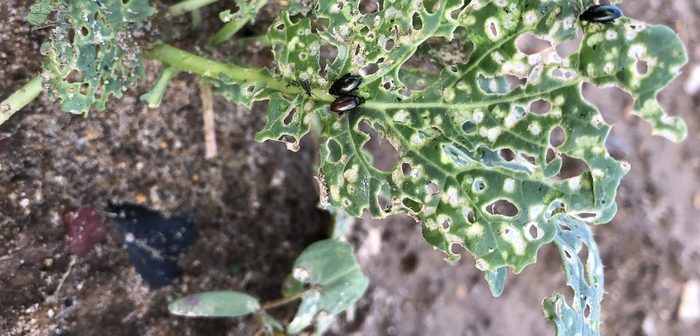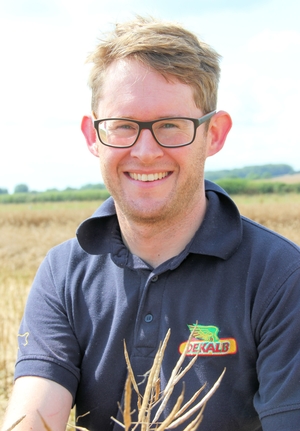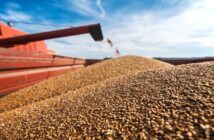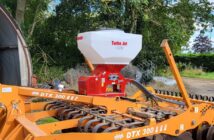Bayer chose Cereals LIVE to launch a special Dekalb Farm Innovation Group (FIG) project, managed by ADAS, to explore and test key cabbage stem flea beetle management strategies at a field-scale with growers across the country from this autumn.
The project aims to improve OSR sustainability in the face of CSFB pressures by building on the most successful techniques identified by the 220-plus grower participants in the first-ever national CSFB management study undertaken this spring.
It brings together six growers selected from study volunteers in ADAS-run tramline trials comparing one of the fastest developing hybrids available (DK Excited) with farm standard varieties across a range of establishment regimes and management practices. The work will be supported by soil moisture measurements at cultivation, drilling and crop emergence as well as assessments of flea beetle pressure, adult damage, establishment success and larval levels.
“Our national study underlined the particular value of fast-developing as well as vigorously establishing hybrids alongside sowing at the right time,” pointed out Bayer’s Dekalb technical specialist, Richard Phillips at the Event. “So, we want to examine these contributions and a number of other promising practices like organic manuring, companion cropping and drilling into long cereal stubbles in more depth and with greater precision. That way we can give growers the best and most practicable research-based advice.
ADAS crop physiologist, Dr Sarah Kendall explained that the precise balance of different CSFB management practices examined in the project will depend on the interests and experience of the growers involved. “Like the other FIG projects we run, so much of the value of this initiative will come from the discussions we have with group members in setting-up the work, debating its findings and combining them with established elements of best OSR-growing practice,” she stressed. “Getting the crop established is only part of the battle. It also needs to be profitable.
This means growers can’t afford to throw key elements of proven best management practice out of the window in dealing with flea beetle. Otherwise, they’ll end up with difficult-to-manage crops that will always struggle to deliver the yields that make them worth growing.
“Instead, we have to integrate the most useful CSFB controls carefully into the most productive management regimes. If this means changing when or how we establish or manage the crop we simply must adjust other elements of agronomy to fit.”






